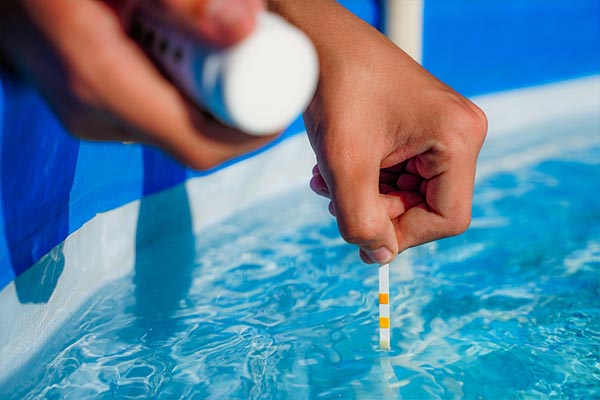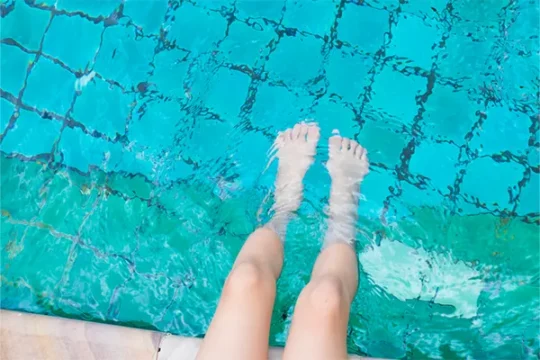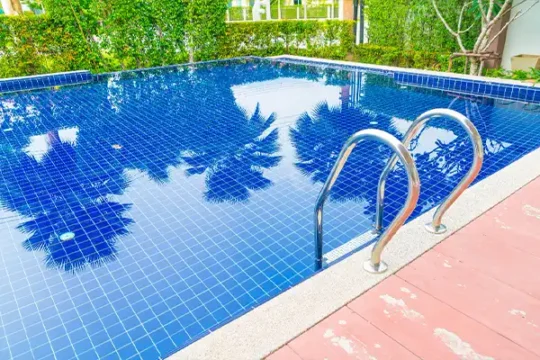TABLE OF CONTENTS
If you’re somebody who likes to keep your house luxurious looking, you’d have a swimming pool in there. Many homeowners have chosen to enhance their pool’s aesthetics with natural or artificial pool rock formations. While these additions elevate the look and feel of a swimming space, they also require attention and maintenance to preserve their beauty.
For pool owners in Ocean County, specifically those with rock additions, the demand for prolonging restoration results has grown. With professional services, such as those offered by local Pool Rock Repair companies, coming at a price, understanding how to care for your pool rock on a DIY basis becomes invaluable.
In this guide, we provide easy-to-follow steps that any homeowner can undertake to ensure their pool rock maintains its grandeur for years to come.
Routine Cleaning
The primary step in maintaining your pool rock is routine cleaning. Dirt, debris, and algae can compromise the appearance and integrity of rock surfaces.
Gentle brushing: Use a soft-bristle brush to sweep away debris. Avoid using steel brushes or hard bristles, which can scratch and damage the rock.
Mild detergents: Occasionally, a gentle detergent may be required to remove stubborn dirt or algae. Ensure any cleaning agent is non-abrasive and thoroughly rinsed off to prevent chemical reactions with pool water.
Sealant Application
Over time, pool rock surfaces can become porous, leading to water seepage and weakening of the structure. Sealants play a pivotal role in guarding against this.
Choose the right sealant: Opt for a high-quality sealant designed specifically for pool rock applications. Consult with local Pool Rock Repair companies for recommendations.
Annual checks: Inspect your rock surfaces annually for signs of sealant deterioration. If water droplets don’t bead up or if the rock feels overly rough, it’s time to reseal.
Maintain Water Quality
The quality of your pool water directly impacts the longevity of your pool rock. Imbalanced water can lead to discoloration, staining, or even erosion of rock surfaces.
Regular testing: Invest in a pool water testing kit and check the pH, alkalinity, and calcium hardness levels regularly. Ideal pH levels for pool water range between 7.2 to 7.8.
Avoid drastic chemical treatments: Suddenly dumping large amounts of chemicals can be harsh on rock surfaces. Always follow manufacturer guidelines and introduce chemicals slowly and evenly.
Preventing Erosion
Erosion can be a pool rock’s worst enemy, especially for homeowners in Ocean County, where saltwater and marine air can expedite the process.
Natural barriers: Planting shrubbery or grass around your pool area can act as a natural barrier against winds and salt sprays. Not only does this enhance the aesthetics, but it also helps protect the pool rock.
Rinse with fresh water: Occasionally rinsing pool rock surfaces with fresh water can help remove salt deposits and prevent erosion.
Prompt Repairs
Even with rigorous maintenance, wear and tear are inevitable. Addressing minor damages promptly can save costly restoration in the future. Periodically inspect rock formations for cracks, chipping, or discoloration.
DIY kits are another way to consider. Small repairs can be addressed using DIY patch kits available in the market. However, for more significant damages, it’s wise to consult with professionals like the Pool Rock Repair company.
Winterization
For those rare chilly nights in Ocean County, ensuring your pool and its rock features are well-prepared for winter can prevent potential damages. Use a robust pool cover to protect against debris and excess rainwater. Moreover, drain excess water. ensure that water doesn’t accumulate and freeze on your rock formations, leading to cracks.
Bottom Line
While there’s undeniable charm in having rock formations grace your pool, maintenance is crucial to retain their original splendor. By following these DIY steps, homeowners in Ocean County can enjoy the beauty and serenity of their pool rock installations for years to come. For significant repairs or concerns, always consult with professionals, ensuring the longevity and beauty of your prized pool area.




